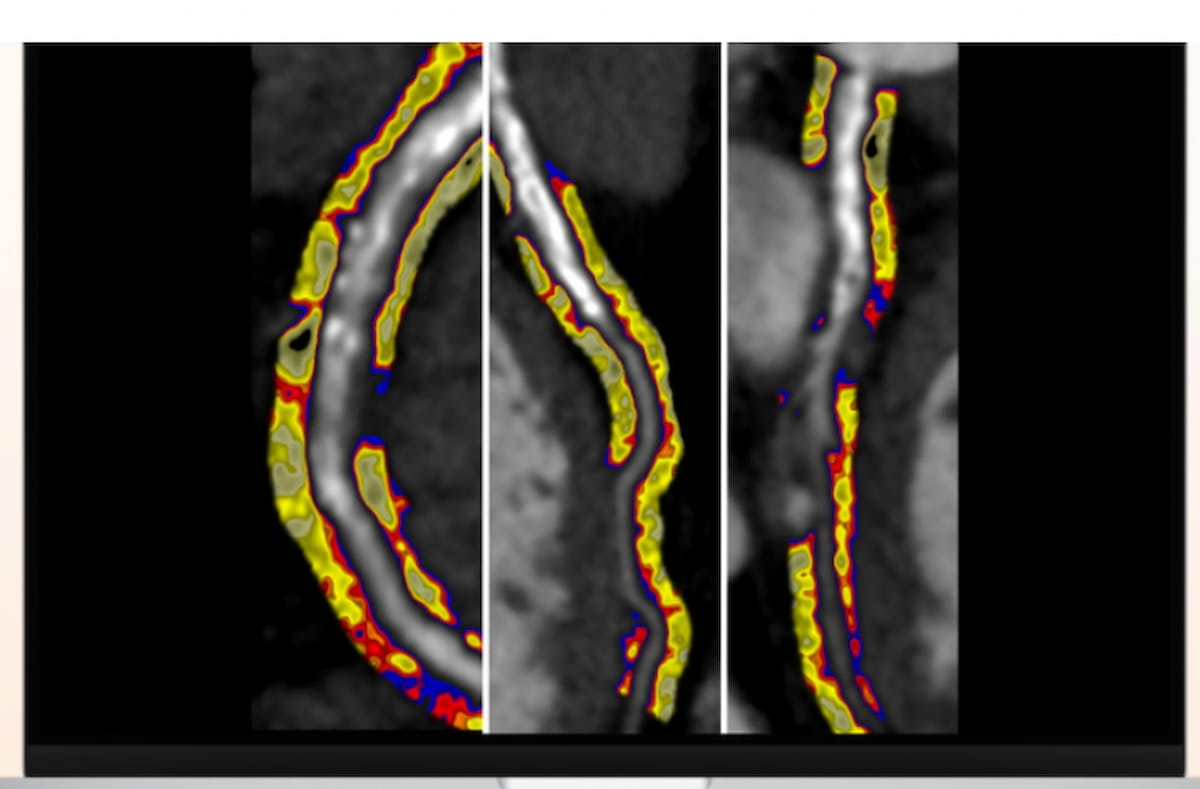AMA Approves Category III CPT Codes for AI-Enabled Perivascular Fat Analysis from CT Scans
Going into effect in 2026, the new CPT codes may facilitate increased adoption of the CaRi-Heart software for detecting coronary inflammation from computed tomography scans pending FDA clearance of the technology.
The American Medical Association has unveiled new CPT codes for artificial intelligence (AI)-assisted perivascular fat analysis derived from coronary computed tomography angiography (CCTA), which has demonstrated enhanced preventative cardiac risk stratification capability for people without obstructive coronary artery disease (CAD).
Currently pending 510(k) clearance from the FDA, the AI-powered CaRi-Heart software utilizes a perivascular fat attenuation index (FAI) score to evaluate coronary arterial inflammation, according to Caristo Diagnostics, the developer of the CaRi-Heart software.
New CPT codes will go into effect on January 1, 2026 for artificial intelligence (AI)-assisted perivascular fat analysis derived from coronary computed tomography angiography (CCTA). (Image courtesy of Caristo Diagnostics.)

In a 2024 multicenter study involving over 40,000 patients who had CCTA, researchers found that a high FAI score was associated with a greater than fourfold higher risk of major adverse cardiac events (MACEs) and a greater than sixfold higher risk of cardiac mortality in comparison to those with low or medium FAI scoring.
The Category III CPT codes X409T and the add-on code X434T for AI-assisted and CCTA-derived perivascular fat analysis will go into effect on January 1, 2026.
"This is a huge leap forward in the fight against heart disease, and a major validation that AI-powered coronary inflammation analysis belongs in routine care," said Frank Cheng, CEO of Caristo Diagnostics. "With CPT approval, we are laying the foundation for a future where every at-risk American has access to precision risk assessment, moving heart care from late-stage intervention to truly preventive medicine."
Newsletter
Stay at the forefront of radiology with the Diagnostic Imaging newsletter, delivering the latest news, clinical insights, and imaging advancements for today’s radiologists.
Mammography Study: AI Facilitates Greater Accuracy and Longer Fixation Time on Suspicious Areas
July 8th 2025While noting no differences in sensitivity, specificity or reading time with adjunctive AI for mammography screening, the authors of a new study noted a 4 percent higher AUC and increased fixation time on lesion regions.